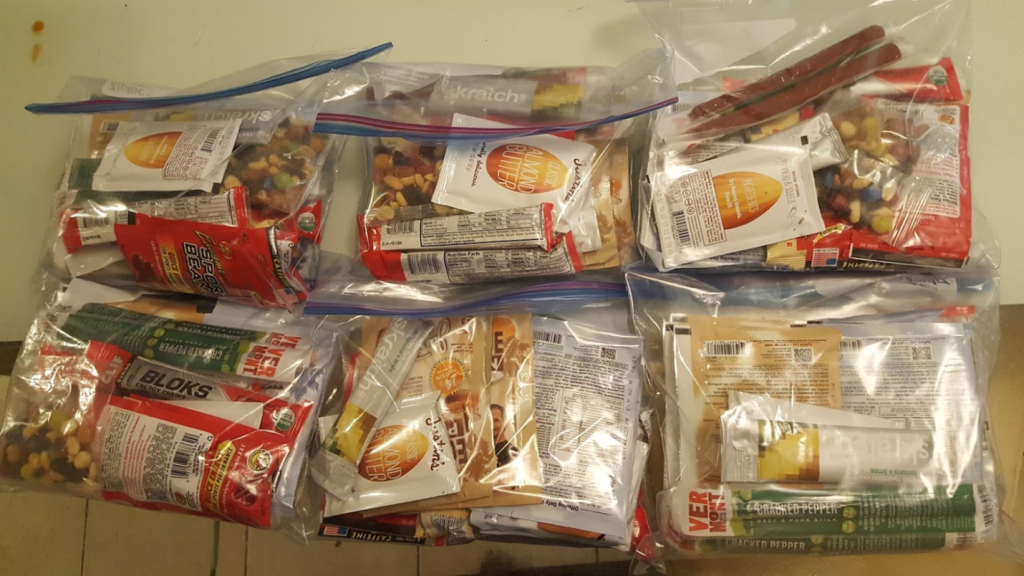
Integrative care – a comprehensive approach to treating gut disorders
An interview with Dr. Trina Seligman
Dr. Trina Seligman is an experienced integrative medicine physician, an adviser to the Crohn’s and Colitis Foundation, an author of several research publications, and a popular presenter on topics of gut wellness and inflammatory bowel disease. She enjoys rock-climbing and being in the outdoors, keeping up with her twins and working as a volunteer for the CCF. She is deeply appreciated by her patients and peers, and works diligently to stay on top of research in natural medicine and to provide her patients with high quality integrative care.


An IBD patient herself, Dr. Trina has unique insights and perspectives. She was diagnosed with Ulcerative Colitis as a teenager and has always hoped to integrate conventional medicine with natural medicine to help provide IBD patients with better choices and a more comprehensive treatment plan. When treating her patients, she likes to take a collaborative approach, not only with the patient, but also with the rest of the patient’s medical team, blending the best of both conventional and natural medicines. She uses acupuncture, herbal and nutritional therapies, and guides her patients on combining lifestyle modifications and exercise.
“Life is about balance. I have a full-time practice, family and a dog, but still need to find time to exercise and stay healthy. I love helping patients to find that balance in their own lives and create wellness through their life choices.”
You are an experienced naturopath and your practice integrative medicine. Can you describe the benefits of this approach, especially when it relates to IBD patients?
Inflammatory bowel disease is a complex disease. I think limiting your care to ONLY Natural therapies OR ONLY Conventional therapies would be limiting your own success. Due to the potentially severe and complex nature of the disease, it’s important to work with a gastroenterologist to have regular scopes and to manage medications when needed. Gastroenterologists have hospital privileges and can provide a referral to surgery if it becomes necessary. A naturopath can help with diet, herbal & nutritional therapies and lifestyle. Integrating care with both medical practices can provide the most comprehensive and holistic care.
You are also a patient who benefited from the combination of modern medical innovations and traditional naturopathic medicine. Can you share some of your personal experience in combining these methods for optimal healing?
I was diagnosed with ulcerative colitis at age 15. I tried to make dietary changes but (this was before the internet, that’s how old I am 🙂 ) there was very little information and guidance. Unfortunately, this pre-dated biologics, so I never was able to see the benefits of modern drug therapy. I underwent a total colectomy at age 18, which greatly improved my quality of life and allowed me to continue my secondary education. Although surgery is considered a ‘cure’, IBD Is an autoimmune disease and my immune system has still been impacted by this disease. I continue to follow a restricted diet and it has really enhanced my quality of life.
Many local doctors refer patients to you, to maximize treatment results and improve the quality of lives of patients. Having a supportive and coordinated medical team is the wish of every patient. You are accepting patients only from Washington state, but can you share good guidelines that may help patients who are trying to assemble an integrative medical team for themselves in other parts of the country/world? What should people look for, and what precautions should they consider taking?
I have seen people promoting themselves as “IBD coach” or similar titles. One thing to remember is that you really want to work with someone who has a medical education. Ask what school they graduated from and what degree they hold. You can find a Naturopathic provider on the website naturopathic.org Most providers will provide you with a “meet and greet” appointment where you can ask questions about their experience and approach in treating IBD. I would suggest you work with someone who has knowledge in the medications that you are using. Unfortunately, I have seen patients harmed by stopping their biologics at the advice of their natural medicine provider. Please make sure to work with both your gastroenterologist and Naturopath to formulate the plan that is best for you.
We know that most successful people chose to adhere to a diet that helps them achieve peak performance. How can diet effect performance in your own field? Can you be a better doctor when adhering to a healthy diet? (be more present for patients/ pay better attention to details throughout a long day’s work, etc..)?
Diet is ABSOLUTELY critical to how I feel and perform every day. I have enjoyed creating a nutrition program for the Crohn’s and Colitis Team Challenge Team to help patients perform better and reach the finish line of a half marathon. I have used diet to help me to reach my own goals of climbing big walls, including El Cap. Having a J-pouch and wanting to climb a 5 day route represented an interesting clinical challenge to me. Diet made all the difference in reaching the summit.

What personal dietary style or dietary restrictions do you chose to follow, based on your own body needs?
There are a few ways to define my diet, which may be easier for people to understand. Simply put, I would say “SCD-modified”. To be more precise, I have an ovo-lacto-pescatarian diet that is grain-free and soy free. *ovo-lacto is eggs and dairy, though I eat small amounts of cheese, primarily goat cheese. I typically use nut-based milks not dairy. My diet also includes fish (pescatarian).
Do you take your own food to work and when you travel?
Yes, I take my own food to work. When I travel, I can usually pick around a menu. When I climb, I am very particular and take all my own food.
Do you like to cook or bake? What food do you enjoy preparing?
I do not like to cook. According to my husband, I really need to stay out of the kitchen. He does all the cooking and my kids are good cooks. If I was responsible for the cooking, then I would eat a raw food diet.
What are your favorite vegetables? How do you like them prepared?
I like spinach salads a lot with anything on them to make them in to a meal. I also like juicing.

Do you enjoy visiting farmer markets, gardening, or any other food-related activities?
I love farmers’ markets; I love buying fresh, local produce. I have a small group of herbs growing in the kitchen and I have plans for building a garden this summer.

What other helpful lifestyle choices do you choose to follow in order to show up at peak performance in your personal and professional life?
Exercise is a lifestyle. It needs to be daily and it’s best if you change activities so that you don’t overuse the same muscles and joints. I love a lot of activities; biking, running, skiing, climbing, weight-lifting, hiking, and walking the dogs. Exercise is important to stay fit and help reduce stress. It helps reduce heart disease, diabetes, and cancer. It is the best thing you can add to your life. Sometimes, I think people set their goals too high and fail, so they stop. If you are doing NO exercise, set a small goal like one walk once a week. Then slowly increase from there. Don’t set a goal of a marathon, set a realistic goal so you can feel great about your success.
How can we empower people, young and old, to learn about the power of good food and adhere to a diet that works best for each individual?
I feel like young people are learning more about nutrition and health in school but the knowledge is often pushed aside by the convenience and marketing of processed food options. It starts with parents; referring to junk food as a “treat” and giving junk every time there is a celebration. I like to focus on finding healthy options for the holidays. In addition, when we brought snacks for kids after their extracurricular activities, we brought healthy options. I hoped it would catch on. We always do a watermelon “cake” for my birthday (icing is with coconut whipped cream) and I think it is fun to think of different healthy ways to replace “junk foods”. We enjoy fruit skewers for celebrations.


More about Dr. Seligman
Dr. Trina M. Seligman – Naturopathic Medicine | Evergreen Integrative Medicine LLC (eimed.com)
Appointments and Telemedicine are available ONLY for Washington state residents:
Evergreen Integrative Medicine
Dr. Seligman’s birthday watermelon cake always attracts special attention and many recipe requests
The “cake” is simply made of fresh watermelon (cut-to-shape), topped with whipped cream and decorated with fresh fruits.
Here are the easy instructions: https://www.instructables.com/watermelon-cake/
It is equally easy to prepare SCD compliant whipped cream, with both dairy and dairy-free options.
Dairy free: Against All Grain: Coconut Whipped Cream (Dairy Free, Quick and Easy)
Dairy: HEAL ~ BALANCE ~ LIVE: How to make SCD Whipped Cream
Dr. Seligman shares one more pro-tip: If you can ‘dry’ off the outside of the watermelon with some paper towel before applying the whip cream, it will stick better. Otherwise, if it is too wet, it slides off.
She added, “I hope people send you pictures of their cakes !!”